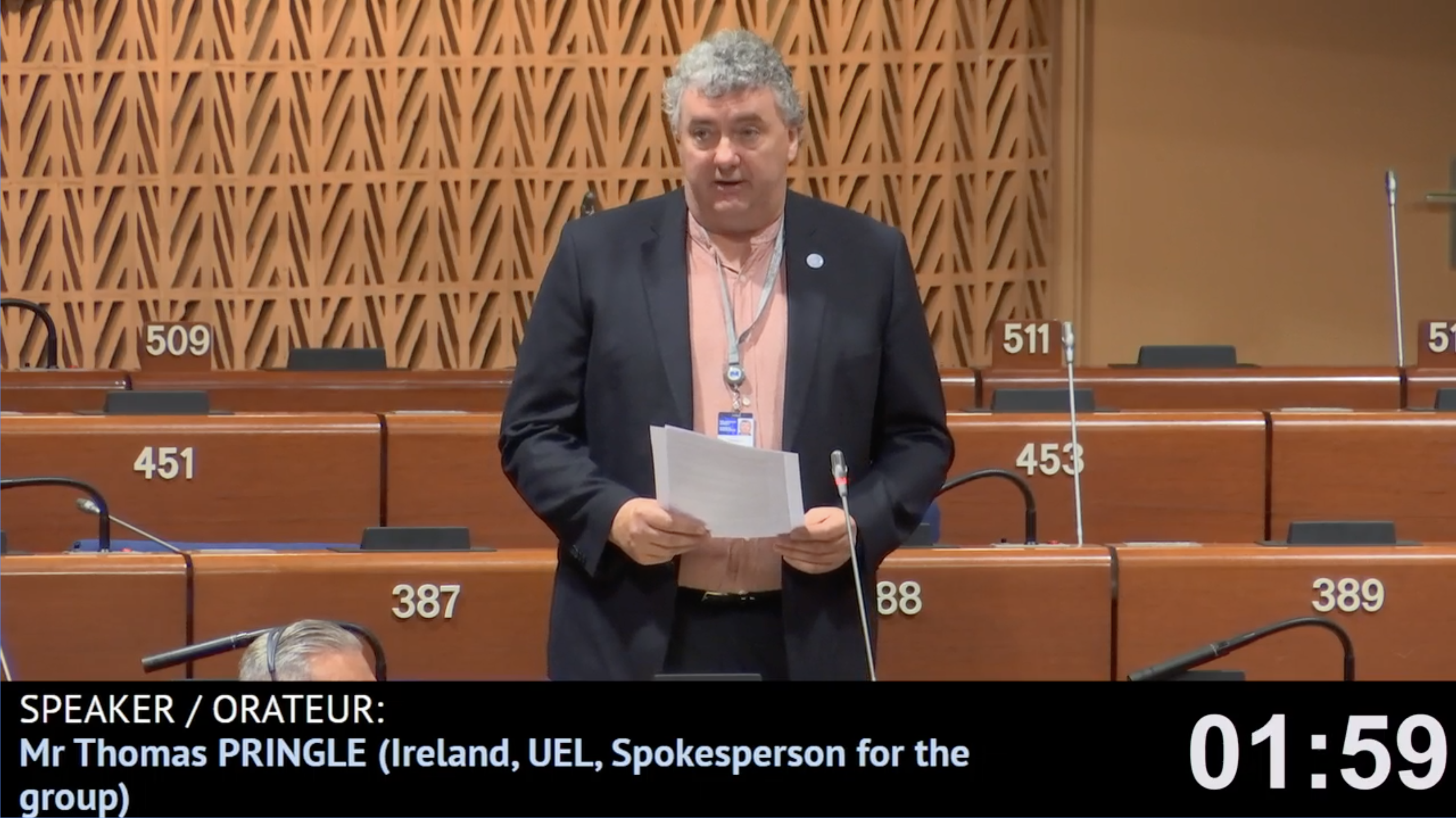- Pringle: We need a policy that recognises the importance of inshore fishing
- Pringle: Disabled people and carers face crisis of State neglect
- Pringle: Failed FF/FG housing policies forcing people to put their lives on hold
- Pringle welcomes Donegal council motion on Occupied Territories Bill: ‘We cannot stand by in the face of genocide’
Pringle: Ireland needs a strong process for recording hate crimes, hate speech
- Updated: 22nd June 2022

Independent TD for Donegal, Thomas Pringle, said Ireland needs a strong process for recording hate crime and incidents of hate speech, in remarks to the Council of Europe on antisemitism.
Deputy Pringle said: “The Irish Council for Civil Liberties has highlighted the lack of specific crimes in its alternative to the State Report for Ireland’s 2022 Review under the International Covenant on Civil and Political Rights.
“They state that ‘despite some new initiatives by An Garda Síochána, including new recording options on the Garda crime reporting system, there is an ongoing lack of reliable research and disaggregated data on causes and experiences of hate crime and hate speech in Ireland’.
“They go on to say that they ‘note with concern that only 25 per cent of crimes were reported to police in 2021, down from 43 per cent in 2020. Those who reported expressed extremely low levels of satisfaction’.
“I believe that the low level of satisfaction is because we do not have a culture of the gardaí reporting and recording hate crime. That has to change,” he said.
Deputy Pringle is in Strasbourg today, where he took part in the council’s parliamentary assembly debate on the report, Preventing and combating antisemitism in Europe. He was speaking on behalf of the Unified European Left Group.
The deputy began his remarks by noting that antisemitism is on the rise across Europe.
Deputy Pringle said: “Antisemitism like all hate speech is particularly abhorrent. It is picking on the most vulnerable in our society and making them stand out. We all need to stand against it because as the saying goes ‘when they came for me there was no one left to speak out’.
“Some years ago, I visited the site of Auschwitz in Poland and it was one of the most harrowing experiences for me and also one of the most profound. To see first-hand the evil that people can do to those more vulnerable and how a state can be organised to carry out such a barbaric policy is a very important learning tool.
“I believe that all school children should visit Holocaust memorials such as this as part of their curriculum.
“We need to make sure that we can never go back to that, and it starts with making sure that hate speech is not tolerated,” he said.
The deputy said a Human Rights Watch report on hate crime against the Jewish population cited a 2018 survey that found 89 per cent of Jewish people living in Austria, Belgium, Denmark, Germany, France, Hungary, Italy, The Netherlands, Poland, Spain, Sweden and the UK feel that antisemitism is on the rise over the last decade.
“This is the extent of the problem that has to be addressed,” he said.
Deputy Pringle also expressed concerns with the definition of antisemitism from the Stockholm Declaration, which includes examples of targeting the state of Israel as antisemitic.
The deputy said: “I fail to see how this can be so. I believe that the state of Israel is not representative of all Jewish people and likewise a person can be critical of the state of Israel without being antisemitic.” He said the Jerusalem Declaration on antisemitism offers a more appropriate definition. The declaration also preserves the possibility of public debate on the Israeli-Palestinian issue.



